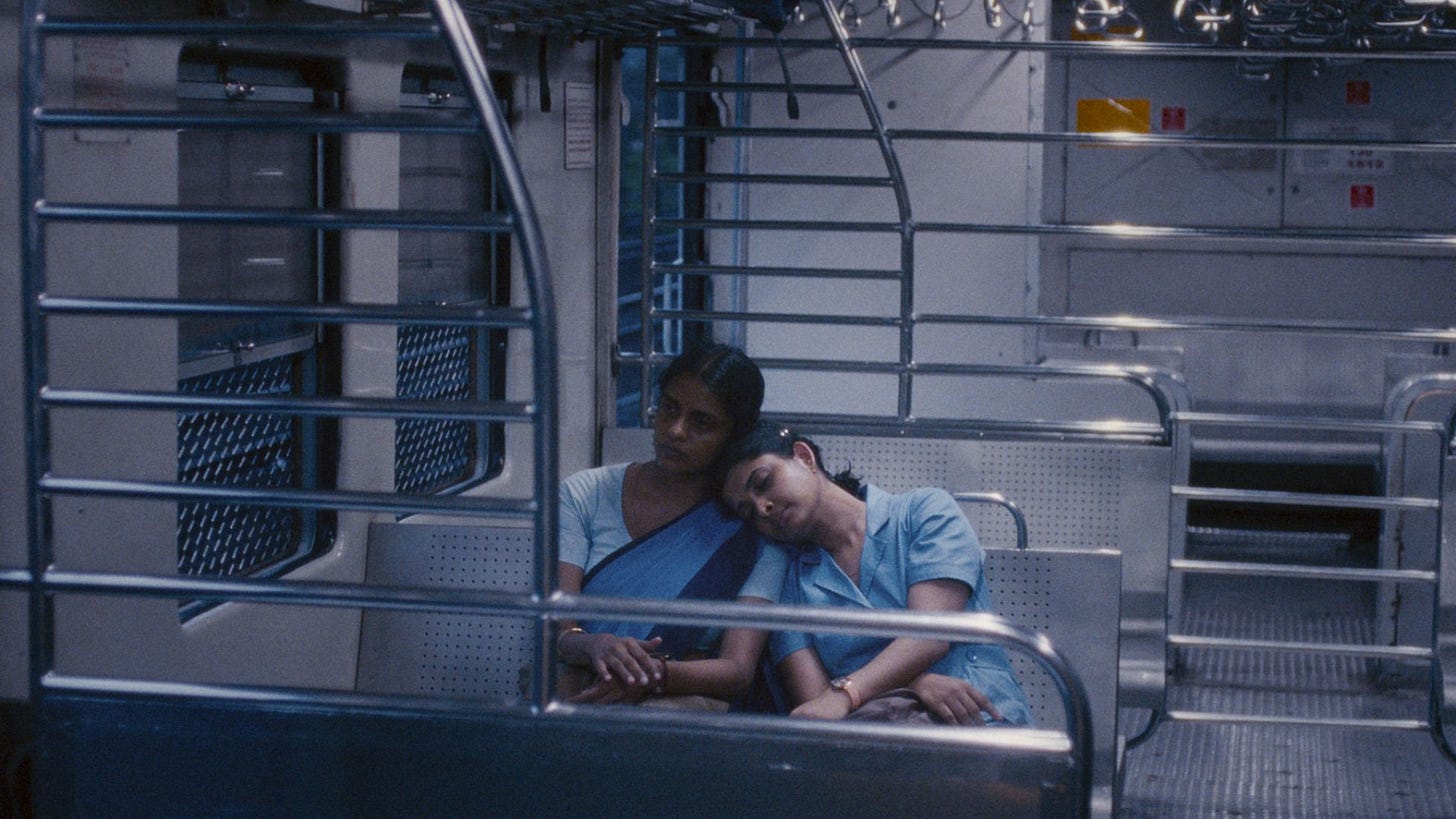'All We Imagine As Light' glows with empathy
Three women bond amid the luminous chaos of Mumbai.
“There are eight million stories in the naked city,” goes the intro to the old TV show. In Mumbai, make that 12 million. The opening scene of writer-director Payal Kapadia’s “All We Imagine As Life” shows a bustling Mumbai train station full of people, swimming upstream and downstream to and from work.
But Kapadia brings us close enough to eavesdrop on snatches of conversation here and there. It may be an overwhelmingly large mass of humanity, but Kapadia shows us that every one in that sea is an individual, with their own hopes, dreams, secrets and regrets.
“All We Imagine As Light” focuses on just three of those many stories, of three Hindu nurses growing closer as they navigate the challenges in their lives. Kapadia, making her first narrative feature, doesn’t rush her story, instead giving us time to observe these characters and their lives.
Prabha (Kani Kusruti) and Anu (Divya Prabha) are roommates in a cramped apartment. Prabha is older, technically still married to her husband, who moved away to Germany long ago for work and clearly has no intention of ever returning. When she receives an expensive rice cooker from an unknown source in the mail, Prabha quietly hopes it’s from her husband. In one heartbreaking scene, Prabha folds her body over it in an embrace, as if she could smell her husband’s scent on the appliance.
While Prabha quietly pines for lost love, Anu is starting a clandestine relationship with a Muslim man. They’re in the new bloom of young love where they assume everything will somehow work out for them. Prabha could tell them otherwise.
The third woman, Parvaty (Chhaya Kadam) is older, and fighting to stay in the apartment she used to live in with her husband that the building owners want to raze and redevelop. In some ways, the three women could be the same person in different phases of life, but Kapadia is careful to draw delineations between the three of them.
The first half of “All We Imagine As Light” glows with luminous street scenes of Mumbai at night, making it seem like a city both intoxicating and overwhelming. But then Kapadia throws a curveball by moving the three women to a small coastal village for the film’s second half, and the film matches its setting, becoming more meditative and even dreamlike.
“All We Imagine As Light” is a movie that avoids easy catharsis or simple conflict resolutions, instead inviting the viewer to get to know these three women. Each is lonely in their own way, each finds a little solace in each other.
“All We Imagine As Light” is now in theaters. In Madison, it will have its theatrical premiere on Thursday at UW Cinematheque.


This is a truly wonderful film that aptly explores the moment in India. I'm glad you liked it. I reviewed it back in November and it remains one of my top 3 of the past year.
One of my favourites the past year. Glad to know that there are other people out there watching foreign movies.